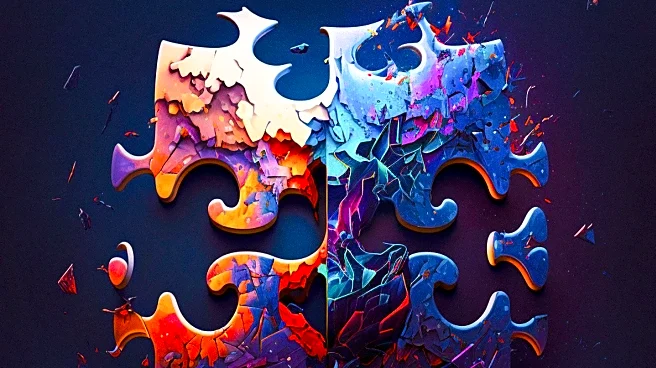What is the story about?
What's Happening?
A recent study has proposed that the complex circuitry of the human brain, which evolved rapidly, may be linked to the prevalence of autism in humans. The study suggests that while humans possess a uniquely intricate brain capable of complex language, forward planning, empathy, and culture, these capabilities may also contribute to the occurrence of autism. The research highlights that the human brain does not have unique cell types but shares the same collection of cell types as rodents. Using single-cell RNA-sequencing, scientists identified at least 49 cell types in the mouse brain, suggesting that the differences between human and other animal brains are due to gene expression levels and connectivity rather than specialized cells.
Why It's Important?
This study is significant as it provides a new perspective on autism, framing it as a potential byproduct of human evolutionary advancements. Understanding autism in the context of evolution could influence how society perceives and addresses the condition, potentially leading to more inclusive and supportive policies. The research also underscores the importance of genetic and neurological studies in unraveling the complexities of human evolution and brain function. This could have implications for medical research, particularly in developing treatments or interventions for autism and other neurological conditions.
What's Next?
Further research is likely needed to explore the connections between brain evolution and autism more deeply. Scientists may focus on identifying specific gene expressions and neural connections that contribute to autism, which could lead to targeted therapies. Additionally, this study may prompt discussions among policymakers, educators, and healthcare providers about how to better support individuals with autism, considering its potential evolutionary roots.
Beyond the Headlines
The study raises ethical and philosophical questions about how society views neurological diversity and the concept of 'normalcy.' If autism is indeed linked to evolutionary processes, it challenges the notion of autism as a disorder, instead suggesting it as a natural variation of human development. This could lead to a shift in cultural attitudes towards autism, promoting acceptance and valuing diversity in cognitive functioning.















